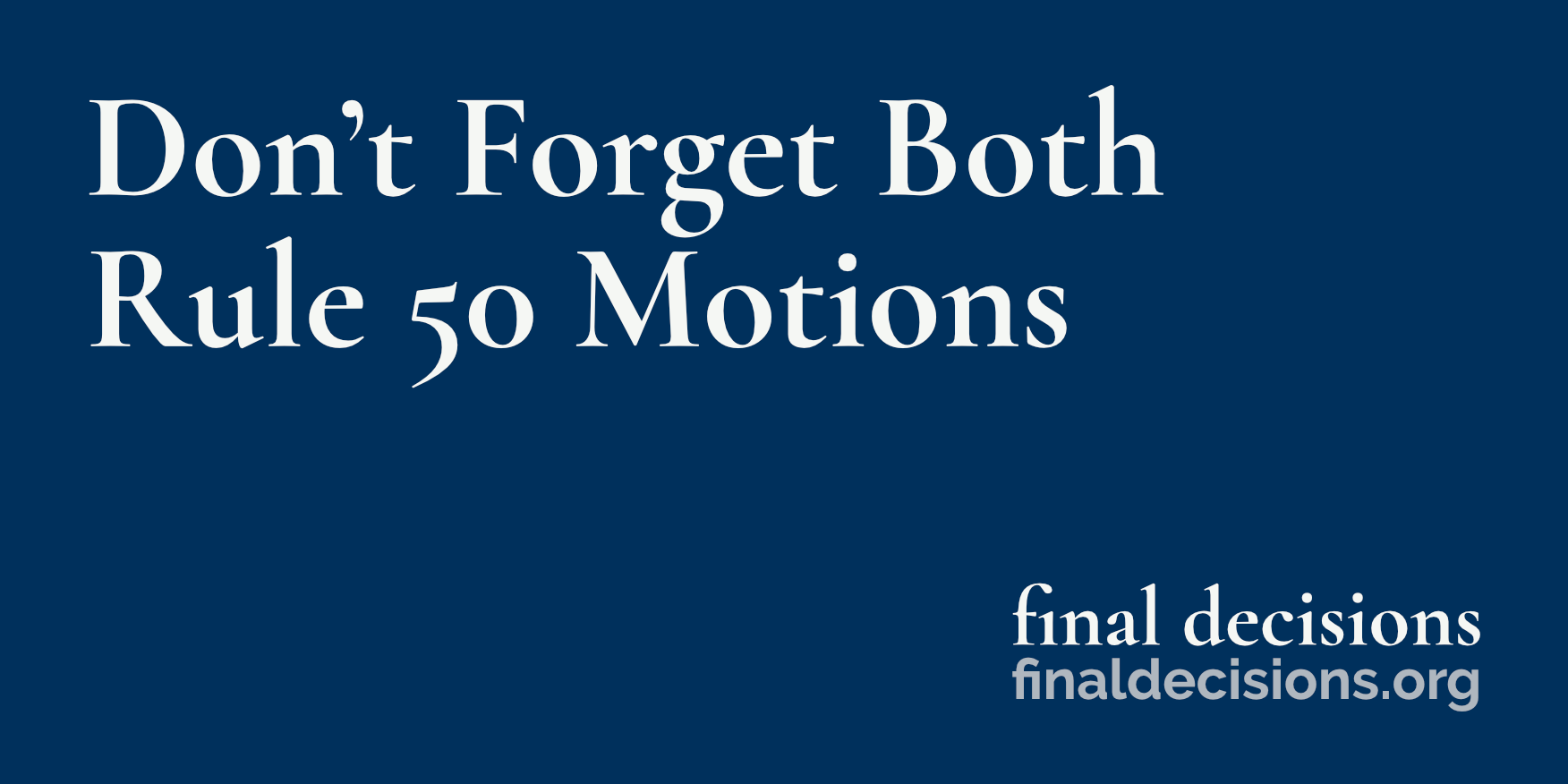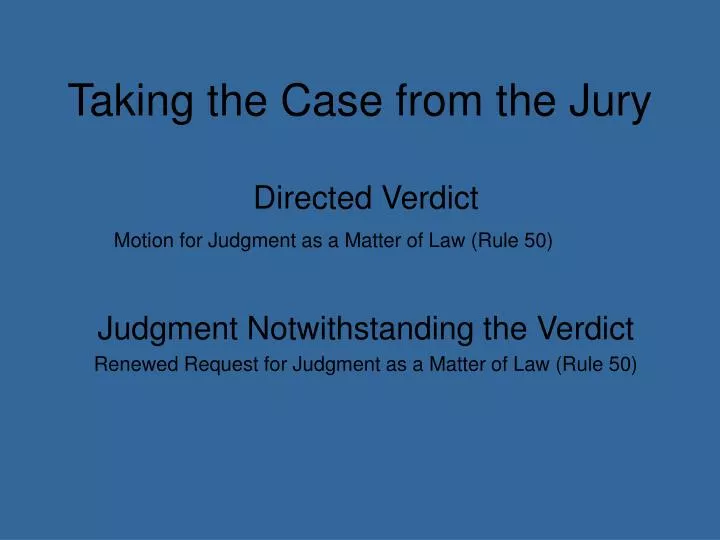
The Court noted that the question is “not whether there is literally no evidence supporting the party against whom the motion is directed, but whether there is evidence upon which the jury could properly find a verdict for that party.” Lightning Lube v. The Court further explained that “Substantial evidence” is defined as “such relevant evidence from the record taken as a whole as might be accepted by a reasonable mind as adequate to support the finding under review.” Perkin-Elmer Corp., 732 F.2d at 893.
#JMOL RULE 50 TRIAL#
The Court began its analysis by explaining that in order to grant a renewed motion for judgment as a matter of law following a jury trial and verdict, a court must determine that the jury’s findings, “presumed or express, are not supported by substantial evidence or, if they were, that the legal conclusion(s) implied by the jury’s verdict cannot in law be supported by those findings.” Pannu v. After judgment was entered, Plaintiff filed two (2) post-trial motions, asserting that he was entitled to judgment as a matter of law pursuant to Rule 50 of the Federal Rules of Civil Procedure or, alternatively, that he was entitled to a new trial pursuant to Rule 59 or Rule 60(b). On July 9, 2015, the jury returned a verdict in favor of the Defendants, and judgment was entered in favor of the Defendants on July 10, 2015. At trial, both Plaintiff and Defendants moved for judgment as a matter of law (“JMOL”) pursuant to Rule 50(a) of the Federal Rules of Civil Procedure on a number of grounds however, the Court denied the parties’ dueling motions. Plaintiff, an inmate in a Delaware DOC facility, asserted Eighth Amendment claims related to the inhumane conditions of confinement under 42 U.S.C.

Sleet denied Plaintiff’s motions.īy way of factual background, on November 15, 2006, Plaintiff Amir Fatir (“Plaintiff” or “Fatir”) brought a lawsuit against current and former Delaware Department of Corrections (“DOC”) employees Stanley Taylor, David Pierce, Janice Henry, James Satterfield, and Ronald Pawlowski (collectively, the “Defendants”).

The United States District Court for the District of Delaware concluded that the verdict was not against the weight of the evidence produced at the trial, and thus, Judge Gregory M. involved a renewed motion for judgment as a matter of law and a motion for a new trial filed by a Plaintiff in a civil rights based case which resulted in a defense verdict.


 0 kommentar(er)
0 kommentar(er)
